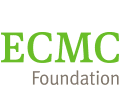Crossing the Finish Line
The UNC System Student Success Innovation Lab (SSIL) is committed to helping more students to and through college in less time. SSIL supports promising initiatives and funds research at our institutions. By rigorously evaluating those projects, the SSIL identifies what works best and scales successful projects to replicate progress throughout the UNC System. SSIL ensures that students have the support they need to make it across the finish line.
OUR Unique APPROACH
The UNC System Student Success Innovation Lab funds and evaluates promising strategies that can improve student success.
The lab leverages the power of the System platform to research and develop strategies with proven capacity to increase completion rates. The project links two key assets from across the UNC System: student success initiatives developed and implemented at the institution level and faculty expertise in the evaluation of education programs. Specifically, the SSIL will:
- Fund evidence-based, cost-effective interventions that demonstrate significant potential to have a measurable impact on student retention, progress, and degree completion;
- Evaluate the effectiveness and rigorously assess the cost-effectiveness of funded projects, using third-party researchers from within the UNC System;
- Share the results across the System and the higher education sector, accumulating evidence that can make the case for taking successful strategies to greater scale.
By supporting cost-effective solutions to student success, the Student Success Innovation Lab will help the UNC System maximize the return on taxpayer dollars. The Lab will also increase collaboration and communication across our institutions as they work together to help more students graduate in a timely fashion.
Areas of Focus
Funding will be designed to support innovative strategies that will enhance students’ abilities to complete required coursework successfully, navigate their chosen degree path efficiently, and graduate on-time. Funding will finance projects in three broad areas: innovation in teaching learning; student advising and support; and financial aid.
Innovation in Teaching Learning:
Harness new approaches to instruction to improve student learning in key courses.
Student Advising and Support:
Develop and test integrated approaches to services and supports that keep students on track to degree completion.
Financial Aid:
Reduce financial barriers that may hinder completion, and create incentives for students to accumulate credits and complete in a timely fashion.
The SSIL represents more than an opportunity for the UNC System to measure the effectiveness of interventions. It is also a platform that allows our institutions to experiment with new ideas, build on existing work, and scale up successful strategies.
partners
The UNC System Office has received over $3.8 million in total funding from the ECMC Foundation, the John M. Belk Endowment, Arnold Ventures and the Michael & Susan Dell Foundation to provide funding to institutions to implement student success projects.
Research Affiliates
The System Office has selected six faculty members from UNC System institutions who have expertise and experience in program evaluation. These Research Affiliates will serve in three related roles:
- Consultant: during project planning phase, Affiliates will assist institutional teams scope and plan projects (letters of intent)
- Applicant: System Office will work to “match” Affiliates to project teams that are invited to submit a full proposal on the basis of common interests. Affiliates will help draft proposal and evaluation plans (full proposals).
- Evaluator: Affiliates that are matched to proposals selected for funding will be eligible to serve as Principal Investigator for the evaluation (a quantitative study of the intervention).
Evaluator Biographies
Angelia Dills
Western Carolina University
Angela Dills is professor of economics and the Gimelstob-Landry Distinguished Professor of Regional Economic Development at Western Carolina University. She received a BA from the University of Virginia and an MA and Ph.D. in Economics from Boston University. She previously held faculty positions at Clemson University, Mercer University, Wellesley College, and Providence College. Her research on the economics of education focuses on issues such as peer effects, college quality, course scheduling, and class size. Her research has appeared in journals such as Economic Inquiry, Southern Economic Journal, Journal of Economic Behavior and Organization, and Economics of Education Review. Professor Dills serves on the editorial boards of the Economics of Education Review and the Eastern Economic Journal. She lives in Franklin, NC, with her economist-husband and three children.
Nianbo Dong
UNC-Chapel Hill
Dr. Nianbo Dong is an associate professor of quantitative methods in the Schools of Education at the University of North Carolina at Chapel Hill. Dr. Dong’s research program centers on developing and applying rigorous quantitative methods to evaluate educational policies, programs, and practice. His current interests in quantitative methodology focus on power analyses of the main, moderation, and mediation effects in multilevel experiments and causal inference. He has developed three statistical software packages for helping users design multilevel experiments to detect the main effect (PowerUp!), moderator effects (PowerUp!-Moderator), and mediator effects (PowerUp!-Mediator) of the intervention (https://www.causalevaluation.org/). His substantive research focuses on the evaluation of the effectiveness of teacher and principal training programs and early child education programs. His work has been supported by the U.S. Department of Education’s Institute of Education Science and National Science Foundation (NSF). Dr. Dong received the NSF Faculty Early Career award in 2017.
Julie Edmunds
UNC Greensboro
Dr. Julie Edmunds, a program director at the SERVE Center at UNCG, conducts research and evaluation on issues related to the transition to college. She has been Principal Investigator of a 12-year longitudinal experimental study investigating the impact of the Early College High School model on student outcomes. She is also principal investigator for evaluations of four large federal grants seeking to apply early college principles to traditional high schools and is leading an experimental evaluation of a federally-funded effort to redesign online courses in a community college. All of her impact studies incorporate qualitative and descriptive components that explore why changes are happening. Her evaluations are informed by previous work as an educator and as a federal policymaker. Dr. Edmunds has a Ph.D. in Education from the University of North Carolina at Chapel Hill, a M.Ed. in Elementary Education from UNC at Greensboro and a BA in History from Yale University.
Dora Gicheva
UNC Greensboro
An associate professor of economics at UNC Greensboro, Dr. Dora Gicheva is an applied microeconomist who works in the areas of labor and education economics. She has published peer reviewed journal articles examining the ways in which students pay for postsecondary education, as well as the impacts of government policies related to higher education financing. She has extensive training in econometric methods and has taught econometrics at the graduate and undergraduate levels. Dr. Gicheva received her Ph.D. in Economics from Yale University.
Steve Hemelt
UNC-Chapel Hill
Steven Hemelt is an assistant professor of public policy at the University of North Carolina at Chapel Hill, a research fellow at the Institute for the Study of Labor (IZA), and a senior researcher with the National Center for the Analysis of Longitudinal Data in Education Research (CALDER). His primary fields of interest are the economics of education, education policy, labor economics, and program evaluation. His current research focuses on transitions from high school to college, postsecondary costs and cost drivers, and student success in higher education. Hemelt’s work has appeared in economics, public policy, and education journals and been funded by the Institute of Education Sciences (IES), the Spencer, Smith Richardson, W.T. Grant, and Walton Family foundations, and the W.E. Upjohn Institute for Employment Research. Hemelt holds bachelor’s degrees in economics and Spanish, a master’s degree in economic policy analysis, and a Ph.D. in Public Policy from the University of Maryland, Baltimore County (UMBC). Prior to joining the faculty at UNC-CH, Hemelt was a postdoctoral research fellow at the Gerald R. Ford School of Public Policy at the University of Michigan.
Carl Westine
UNC Charlotte
Dr. Carl Westine is an assistant professor in the Department of Educational Leadership at UNC Charlotte. Dr. Westine teaches research and program evaluation courses for the various graduate programs in the Cato College of Education including the Ph.D. in Educational Research, Measurement, and Evaluation program. Dr. Westine is a 2014 graduate of the interdisciplinary Ph.D. in Evaluation program at Western Michigan University. His methodological research focuses on improving efficiency in the design of educational evaluations. He accomplishes this by leveraging data from large-scale evaluations, as well as state-wide and national longitudinal data sets to estimate design parameters necessary in power analyses for experimental evaluations. He also engages in research on evaluation theories, models, and practice. Dr. Westine is actively engaged in the American Evaluation Association and is presently co-chair of the Design and Analysis of Experiments Topical Interest Group.
Contact
For questions or additional information contact Mary Varghese via email.



